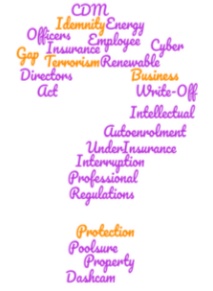
Blockchain may sound like something from the industrial revolution...
…but it is very much part of the digital age and seems set to revolutionise the way that financial transactions are processed. Blockchain is technology that provides the backbone, the ‘blocks’, for a chain of shared information and whilst originally devised for the digital currency, Bitcoin, is now being used for other transactions including insurance.
The best example I have heard of how it works is with travel delay insurance. The blockchain knows that you have bought the airline ticket and the insurance. It then knows that you have boarded, whether the plane was delayed and the reason. If the delay is covered, you are paid the policy benefit. There is no need to make a claim it just happens automatically based on the facts that are processed onto the blockchain.
The main attraction to insurers is that minimal human intervention drives down their costs, enabling them to reduce premiums, which should increase demand for the cover, but it should also deliver what we (as consumers) increasingly demand. Easy, no hassle and immediate service.
At present, the blockchain technology is only suited to very straightforward ‘commodity’ type insurances paying fixed benefits rather than covers that require assessment either of the risk before cover is incepted or the claim payment. However, it may become more prevalent if the so called ‘sharing economy’ takes off and lends itself to short term cover arranged via Smart phones and Apps. Whilst presently, its use for ‘end to end’ insurance contracts is limited, we are seeing insurers use blockchain for parts of the insurance process, including checking data during the claims process and tracking shipped goods around the world for marine insurance. There is also technology that combines blockchain and artificial intelligence (AI) to assess accident damage and estimate repair costs.
There are the obvious concerns about loss of jobs from advanced technology, but that is not just a worry for the insurance industry and the main concern is security, although we are assured that blockchain is virtually ‘cyber’ proof. Each block contains the latest part of the transaction plus ‘mini’ blocks with all the information from the preceding blocks and as they are stored in multiple places would require extremely powerful computers to try and corrupt the whole chain. That sounds great, but how many times do we hear that impenetrable systems have been breached and the criminals always seem to be closely behind, if not ahead of the good guys.
There is also the element of big brother and another excuse for more and more data to be stored about us, not always with our best intentions in mind. Who knows what’s next but anything that speeds up claim payments should be welcomed, so up the revolution!


Recent Comments